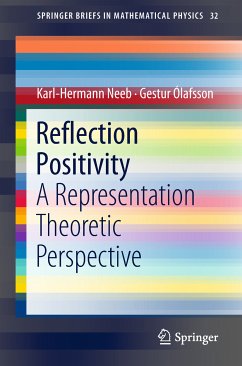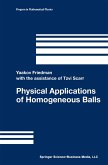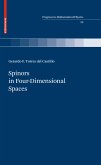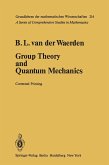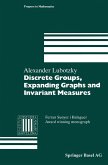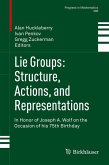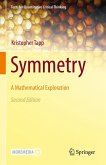This book provides the first presentation of the representation theoretic aspects of Refection Positivity and discusses its connections to those different fields on a level suitable for doctoral students and researchers in related fields.
It starts with a general introduction to the ideas and methods involving refection positive Hilbert spaces and the Osterwalder--Schrader transform. It then turns to Reflection Positivity in Lie group representations. Already the case of one-dimensional groups is extremely rich.
For the real line it connects naturally with Lax--Phillips scattering theory and for the circle group it provides a new perspective on the Kubo--Martin--Schwinger (KMS) condition for states of operator algebras.
For Lie groups Reflection Positivity connects unitary representations of a symmetric Lie group with unitary representations of its Cartan dual Lie group.
A typical example is the duality between the Euclidean group E(n) and the Poincare group P(n) of special relativity. It discusses in particular the curved context of the duality between spheres and hyperbolic spaces. Further it presents some new integration techniques for representations of Lie algebras by unbounded operators which are needed for the passage to the dual group. Positive definite functions, kernels and distributions and used throughout as a central tool.
Dieser Download kann aus rechtlichen Gründen nur mit Rechnungsadresse in A, B, BG, CY, CZ, D, DK, EW, E, FIN, F, GR, HR, H, IRL, I, LT, L, LR, M, NL, PL, P, R, S, SLO, SK ausgeliefert werden.

